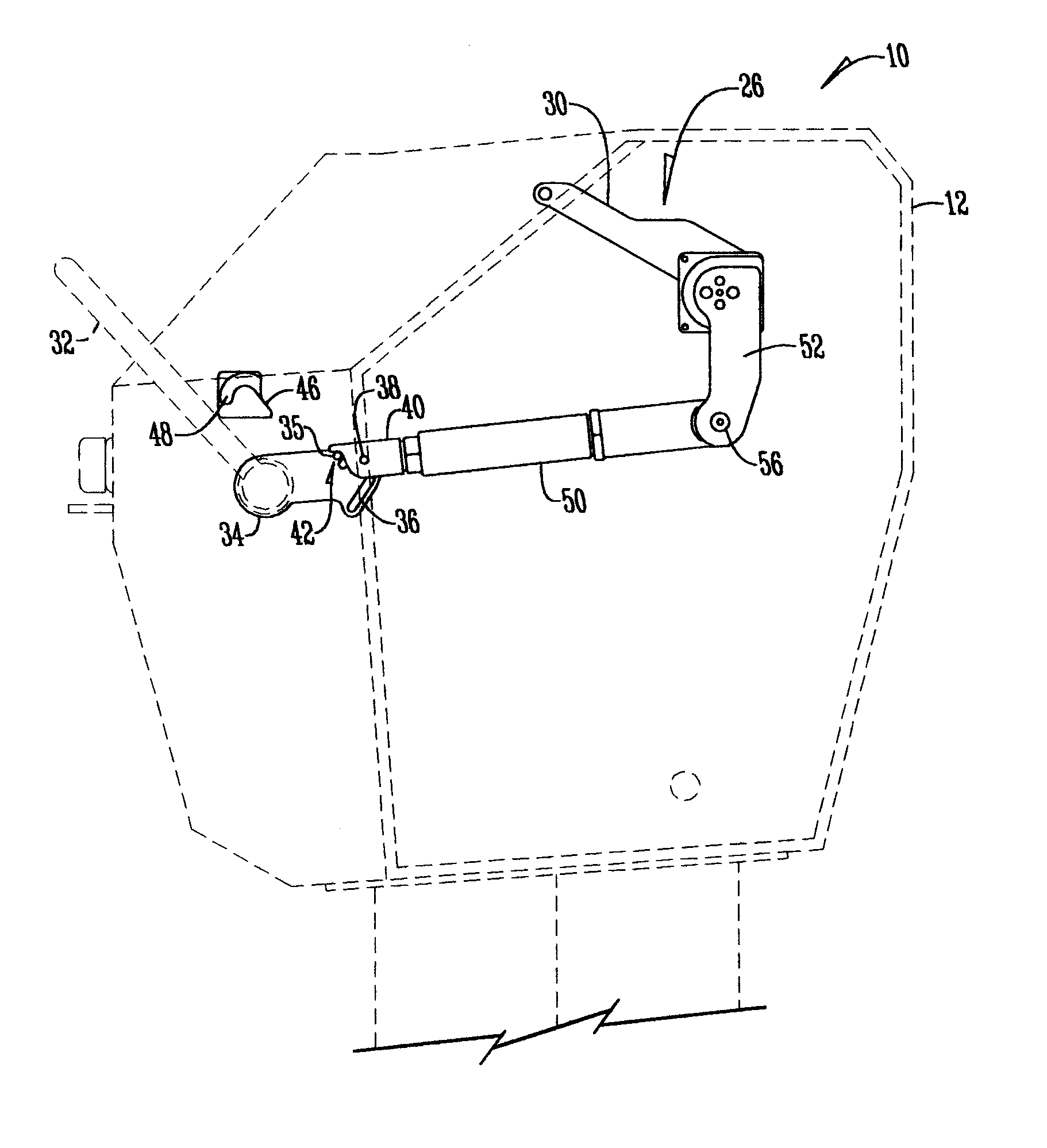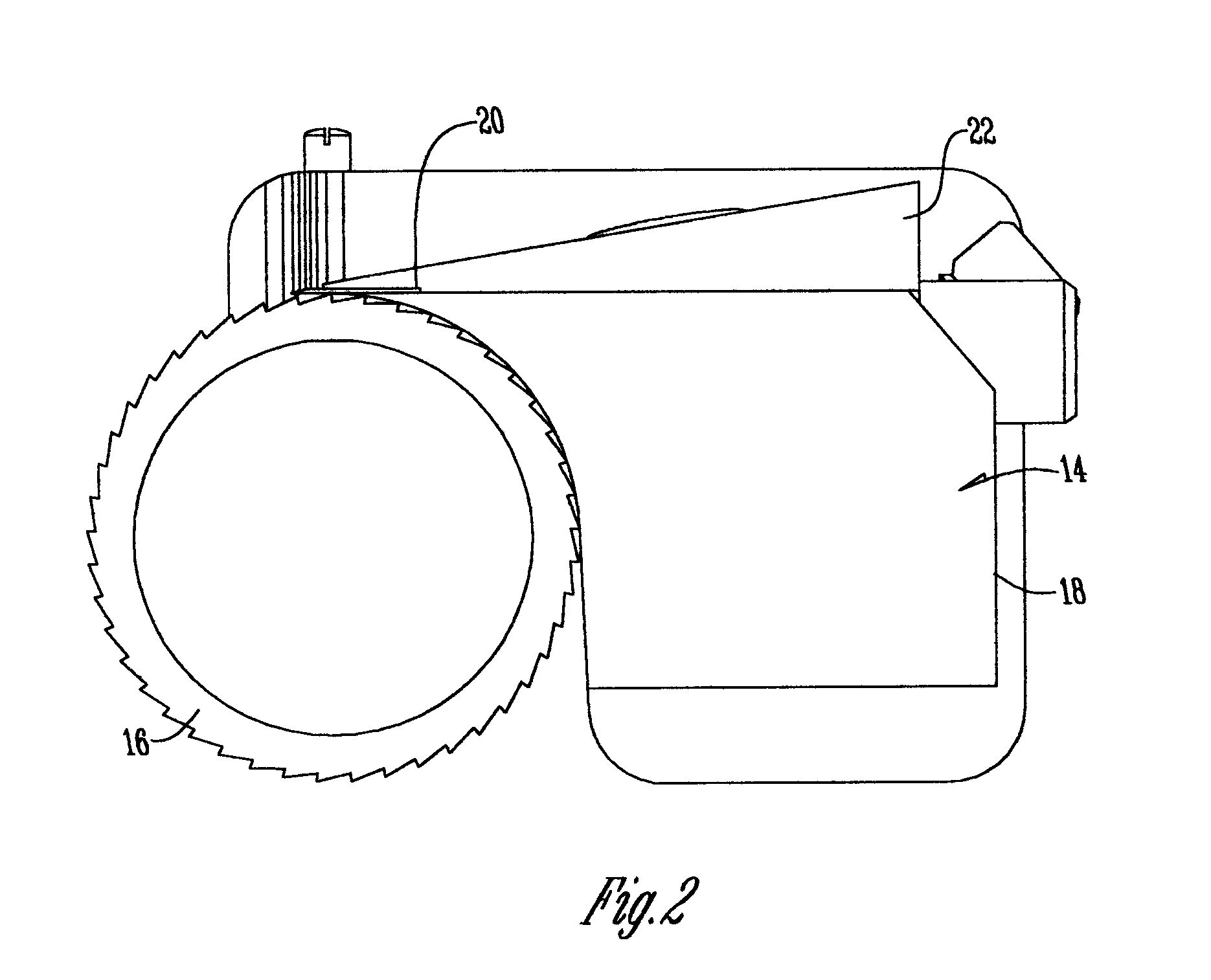Shoe tensioning linkage for meat skinner
a skinner and tensioning linkage technology, applied in the field of skinning machines, can solve the problems of cumbersome trauma injuries, increased labor intensity of manual methods, and increased labor intensity of manual methods, and achieve the effect of raising and lowering the skinning assembly
- Summary
- Abstract
- Description
- Claims
- Application Information
AI Technical Summary
Problems solved by technology
Method used
Image
Examples
Embodiment Construction
[0017]Referring to FIGS. 1 and 2, a skinning machine 10 has a frame 12 with a skinning assembly 14 and a toothroll 16 operatively associated with the frame 12. The toothroll 16 is rotatably mounted to the frame 12. The toothroll 16 is driven by a drive mechanism (not shown). The drive mechanism includes but is not limited to, any conventional drive device operatively connected to a power source (not shown).
[0018]The skinning assembly 14 is positioned in spaced relation to the toothroll 16. The skinning assembly 14 includes a shoe 18 with a blade clamp 22 attached thereto for receiving and holding a skinning blade 20. The skinning blade 20 is positioned between the shoe 18 and the clamp 22 such that blade 20 is adjacent the radial surface of the toothroll 16. The toothroll 16 assists in directing a layer of skin and / or fat of a meat part (not shown) between the shoe 18 and the toothroll 16. The toothroll 16, shoe 18, and skinning blade 20 remove the skin and / or fat from the meat part...
PUM
 Login to View More
Login to View More Abstract
Description
Claims
Application Information
 Login to View More
Login to View More - R&D
- Intellectual Property
- Life Sciences
- Materials
- Tech Scout
- Unparalleled Data Quality
- Higher Quality Content
- 60% Fewer Hallucinations
Browse by: Latest US Patents, China's latest patents, Technical Efficacy Thesaurus, Application Domain, Technology Topic, Popular Technical Reports.
© 2025 PatSnap. All rights reserved.Legal|Privacy policy|Modern Slavery Act Transparency Statement|Sitemap|About US| Contact US: help@patsnap.com



